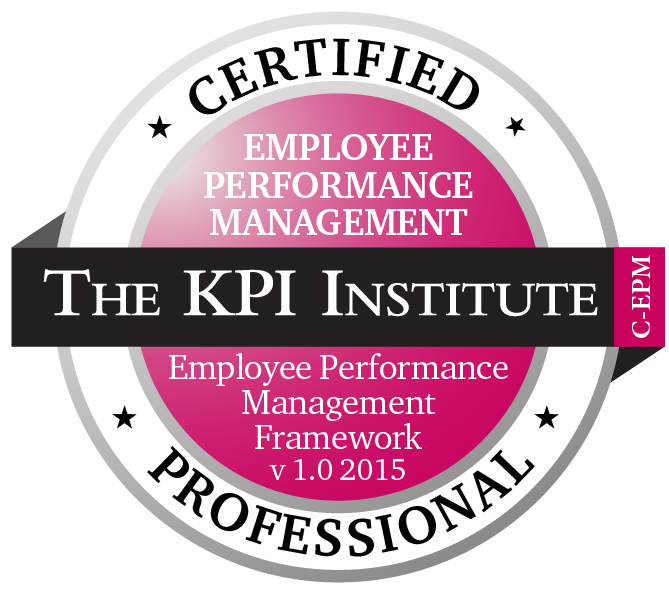Introduction
This course will clarify key, specific, detailed concepts and will provide practical tools and techniques for implementing, improving or maintaining the company’s employee performance management system. Attendees will gain exposure to best practices in the field of performance management and will learn how to establish and use criteria for evaluating performance.
5 Benefits
- Nurture core competencies in order to design, implement, monitor, evaluate and follow a performance management cycle in a successful manner;
- Improve the visibility and clarify accountability related to performance expectations;
- Implement the knowledge acquired during the training course, by accessing a set of performance management tools and relevant;
- Identify the necessary corporate competencies and skills gaps to generate sustainable growth;
- Obtain a certified professional diploma in the field of Employee Performance Management, by following a robust learning experience provided by The KPI Institute.
Learning objectives
- Understand the fundamentals of the performance management framework;
- Learn how to track the employee performance during each phase of performance management cycle;
- Apply key tools to measure employees’ results in a fair and objective manner;
- Gain the knowledge of developing a Performance Management System business case and get stakeholders’ buy-in;
- Learn how to conduct efficient performance appraisals.
Evaluation
The certification process is finalized when you complete all stages of the learning experience. Nonetheless, you will receive a:
- Certificate of Completion (soft copy): after completing pre-course activities and passing the Certification Exam;
- Certificate of Attendance (hard copy): after participating at the three days of on-site training course;
- Certified Employee Performance Management Professional diploma (hard copy): after you have successfully completed all of the three stages of the learning experience.
1 – Introduction to the World of Employee Performance Management System
Employee Performance Management context
- Benefits of implementing an Employee Performance Management System;
- Prerequisites of an Employee Performance Management System;
- Governance for the Employee Performance Management;
- Impact areas of an Employee Performance Management System.
Employee Performance Management System Architecture
- The link between business strategic objectives and day-to-day actions;
- Tools and techniques used in performance management;
- Visibility and accountability through employee performance management.
Employee Performance Management System Implementation project
- Importance of a business case for an implementation project;
- Elements of a business case;
- Tools and templates used for a business case;
- EPMS project plan: objectives, activities, responsibilities, resources, budget.
2 – Measuring Employee Performance
Establish performance criteria
- Cascading objectives and KPIs from organizational to departmental and individual level;
- Defining and selecting competencies;
- Defining and setting behaviors.
Evaluating Employee Performance
- Employee performance evaluation form;
- Evaluating KPI results;
- Assessing competencies and behaviors;
- Rating overall performance.
3 – Nurturing Employee Performance
Employee Performance Management Cycle
- Employee performance planning;
- Mid-year performance review objectives;
- Point of contact and support for employees;
- Annual performance review.
Employee Performance appraisal meeting
- Preparation for the appraisal meeting;
- Feedback techniques and recommendations;
- Active listening;
- Performance conversations.
Talent management
- Linking performance evaluation to talent management;
- Employee performance plans: career path, development plan;
- Compensation and benefits?
Review and Certification Exam
- Course review;
- Certification exam.






